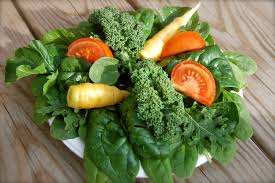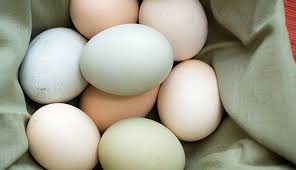
Our bodies require a long list of nutrients to maintain a healthy body. Even if you're consuming a balanced diet, it is likely that you are deficient in some minerals.
These deficiencies do ramp up your chances of chronic diseases. So, you need to be aware about these minerals. Luckily, these deficiencies can be countered easily with a readily available multivitamin tablet. These are available in different combinations and are very affordable too. A good investment in your health definitely.
So here are the 5 minerals you need to watch out for:
1. Calcium
Calcium is a building block of both bones and teeth. It is also vital for muscle function. With increasing age, our bones become brittle and the need for calcium increases. Intake of 1200mg/day is recommended for Women. Vitamin D is crucial for calcium uptake.
Calcium deficiency may manifest as osteoporosis or tooth loss.
Sources of calcium include milk products, nuts, seeds & leafy vegetables. You can also use supplements in appropriate doses. Consult a doctor for your required doses.
2. Iron
Iron plays an important role in haemoglobin production. Ir carries oxygen in the blood as part of red blood cells (RBCs).
Daily requirement of iron varies between 8-18mg/day. Higher requirement for menstruating women.
Iron deficiency leads to anaemia & can lead to fatigue or breathlessness.
Iron-rich foods include spinach, organ meats, seeds, broccoli & fishes. Tea & coffee are known to reduce iron absorption, while Vitamin C increases iron absorption. Animal sources of iron are easily absorbed.

3. Magnesium
Magnesium is critical for muscle & nerve functioning. It affects mood, sleep & blood glucose. It is also involved in enzymatic reactions.
Rich sources of magnesium are pumpkin seeds, chia seeds, green leafy vegetables, almonds, beans & fish.
Recommended daily intake of magnesium is 300mg/day for females.
Magnesium deficiency shows up as fatigue, nausea, muscles cramps, seizures or numbness.
Magnesium is very helpful after menopause.
Therefore, be sure to include magnesium rich foods or supplements as part of your diet.
4. Zinc
Zinc is essential for immunity, metabolism, vision & wound healing. Like magnesium, zinc is also involved in multiple enzymatic reactions.
It is plentiful in poultry, red meat, fish & beans. Shell fish being the richest source of zinc.

RDA of zinc is 12mg/day for females. Zinc can not be stored in the body, so regular intake is essential. Be careful when supplementing and consult an expert.
Symptoms of Zinc deficiency are diarrhea, delayed wound healing, delayed growth & skin issues.
5. Copper
Copper is a heavy metal that is required in only trace amounts. It is involved in RBC production, connective tissue development & absorption of iron.
Too much of copper can cause toxicity and deposition in the liver and the eyes.
Copper deficiency results in motor symptoms, anemia & vision impairment.
Chocolate, beans and bran are sources of copper. A balanced diet should be sufficient for copper requirements. 10mg/day is the upper limit of copper consumption.
